Sony a-1 II
If you are thinking of purchasing a Sony a-1 II soon, do not pre-order one. Wait till I can supply a link so that you can earn a free setting guide when and if I purchase one.
Thanks!
Thanks for all the erudite comments on the last blog post. That would be none, to be exact 🙂
What’s Up?
After two pretty good (but too warm for November!) days. Wednesday morning at the inlet was insane not to mention the breezy, cool fall weather. Dozens of pelicans and Ospreys dove for fish almost non-stop for an hour. The photography was so good that I was giddy with excitement. With one huge dark cloud on the eastern horizon, I opted for the 200-600/a-1 combo so that I could do blurs at first and then go for sharp when the sun came out. It was an in and out morning of sun and clouds. Thank the lord for Sony Zebra technology. I still have room for one more at the AirBnB in Sebastian. As the weather has cooled, the Osprey action should continue to heat up. I am looking forward to Steve and Elisabeth Shore’s arrival this coming Sunday.
There is a single opening on the first Homer Bald Eagle IPT (flight photography until you cannot lift your lens any longer) this coming February along with two days of songbird set-up photography at a private home in Anchor Point, AK before the Eagle IPT. The songbird feeder sessions are $500/day. I am offering a substantial discount on the IPT to the person who wishes to do seven great days of photography and learning in a gorgeous winter setting. Scroll down for complete details. Please contact me via e-mail or try me on my cell at 863-221-2372. Please leave a message and shoot me a text if I do not pick up 🙂
Today is Thursday 14 November 2024. As John Johnson headed back to Naples after the thrilling morning session yesterday, Bob Eastman and I will be headed back to the state park for our 17th straight early morning of photography, learning, fun, and friendship.
Please remember to use the B&H links that are found on most blog pages and to use the BIRDSASART discount code at checkout when purchasing your new gear from Bedfords to get 3% back on your credit card and enjoy free second-day air FedEx. Please, also, consider joining a BAA IPT. You will be amazed at how much you will learn!
If an item — a Delkin flash card, or a tripod head — for example, that is available from B&H and/or Bedfords, is also available in the BAA Online Store, it would be great, and greatly appreciated, if you would opt to purchase from us. We will match any price. Please remember also to use my B&H affiliate links or to earn 3% cash back at Bedfords by using the BIRDSASART discount code at checkout for your major gear purchases. Doing either often earns you free guides and/or discounts. And always earns my great appreciation.
Supporting My Efforts Here
If you enjoy and learn from the blog, are all set for gear, or live overseas, consider leaving a BAA Blog Thank You Gift here.
If you enjoy and learn from the blog, please consider using one of my affiliate links when purchasing new gear. It will never cost you a single penny. To support my effort here, please order from B&H by beginning your search here. Or, click here, to order from Bedfords and enter the discount code BIRDSASART at checkout to receive 3% cash back to your credit card and enjoy free Second-Day Air Fed-Ex shipping. It is always best to write for advice via e-mail.
In many cases, I can help you save some serious dollars. And/or prevent you from purchasing the wrong gear from the wrong shop.
|
|
|
This image was created on 22 February 2024 at Anchor Point, AK. I used the hand held Sony FE 300mm f/2.8 GM OSS Lens (Sony E) with the Sony FE 1.4x Teleconverter (at 420mm) and The One, the Sony Alpha 1 Mirrorless Digital Camera). The exposure was determined via Zebra technology with ISO on the thumb dial. ISO 1600. 1/1000 sec. at f/4 (wide open) in Manual mode. When evaluated in RawDigger, the raw file exposure was determined to be dead-solid perfect. AWB at 10:54:48am on a cloudy morning. Tracking: Zone AF-C with Bird Face/Eye detection enabled performed perfectly even at 1200mm. Be sure to click on the image to enjoy a high-res version. Image #1: Pine Grosbeaks — male and female on spruce bough with cones |
Pine Grosbeak
This species is the star attraction at the feeders. In most years, they are relatively abundant. In 2024, I did not bring my 600mm f/4 to Homer and did 90% of my photography with the Sony 300mm f/2.8 GM lens. I used the bare lens for most of the eagle flight photography — it was perfect. For eagle head portraits and at the feeders, I added either teleconverter for a fast, lightweight, hand holdable rig that allowed me to get into position quickly and easily.
I’ve been getting some great stuff with the hand held 300mm and the 2X TC in the very difficult wind-against-sun afternoon sessions at Sebastian.
|
|
|
This image was created on 22 February 2024 at Anchor Point, AK. I used the hand held Sony FE 300mm f/2.8 GM OSS Lens (Sony E) with the Sony FE 2x teleconverter (at 600mm), and The One, the Sony Alpha 1 Mirrorless Digital Camera). The exposure was determined via Zebra technology with ISO on the thumb dial. ISO 1250. 1/1000 sec. at f/5.6 (wide open) in Manual mode. When evaluated in RawDigger, the raw file exposure was determined to be dead-solid perfect. AWB at 9:33:40am on a partly sunny morning. Tracking: Zone AF-C with Bird Face/Eye detection enabled performed perfectly even at 1200mm. Be sure to click on the image to enjoy a high-res version. Image #2: Pine Grosbeak female with berries |
Bingo
With permission from our host, I stuck a small branch with a cluster of mountain ash berries in the snow and crouched down when a female arrived to chow down. As the sun had popped out for just a minute, I was able to get right on sun angle and create a fine series of images. Folks working on a tripod were D-E-A-D dead!
|
|
|
Those who did not use my link to purchase their Sony 300mm f/2.8 GM lens, can order their a copy here for $209.93. Click on the image to enlarge and to be able to read the fine print. |
The BAA Sony 300mm f/2.8 Lens Guide
Impressed by my Sony FE 300mm f/2.8 GM OSS Lens (Sony E) images? Use either my Bedfords or B&H affiliate link to purchase your Sony 300mm f/2.8 GM lens and shoot me your receipt via e-mail and request a copy of the first-ever BAA Lens Guide. I thought that it would take only minutes to create this guide, but I was dead wrong. In the process of creating it, I learned a ton about the lens. And even better, I discovered a simple yet potentially fatal flaw that was resulting in sporadically unsharp flight images. The set-up fix is simple. Just be sure to use one of my affiliate links and get the guide for free.
If not, you can purchase a copy here for $209.93. Yes, it never hurts to use my links and it never costs you one penny more. And if you contact me via e-mail before you make a major purchase; I can often save you some money.
|
|
|
This image was created on 22 February 2024 at Anchor Point, AK. I used the hand held Sony FE 300mm f/2.8 GM OSS Lens (Sony E) with the Sony FE 2x teleconverter (at 600mm), and The One, the Sony Alpha 1 Mirrorless Digital Camera). The exposure was determined via Zebra technology with ISO on the thumb dial. ISO 500. 1/1000 sec. at f/5.6 (wide open) in Manual mode. When evaluated in RawDigger, the raw file exposure was determined to be perfect. AWB at 11:06:36am on a cloudy bright morning. Tracking: Zone AF-C with Bird Face/Eye detection enabled performed perfectly even at 1200mm. Be sure to click on the image to enjoy a high-res version. Image #3: Red-breasted Nuthatch on spruce bough with cones |
Both Nuthatches
Both Red-breasted and White-breasted Nuthatches visit the feeders in most years. I still am trying for a good white-breasted image. Image #3 is my only and thus best ever red-breasted photo. They are fast buggers.
|
|
|
This image was created on 22 February 2024 at Anchor Point, AK. I used the hand held Sony FE 300mm f/2.8 GM OSS Lens (Sony E) with the Sony FE 2x teleconverter (at 600mm), and The One, the Sony Alpha 1 Mirrorless Digital Camera). The exposure was determined via Zebra technology with ISO on the thumb dial. ISO 1250. 1/1600 sec. at f/8 (stopped down 1 stop) in Manual mode. When evaluated in RawDigger, the raw file exposure was determined to be perfect. AWB at 2:54:56pm on a cloudy bright morning. Tracking: Zone AF-C with Bird Face/Eye detection enabled performed perfectly. Be sure to click on the image to enjoy a high-res version. Image #4: Red Crossbill immature male on spruce cone |
Both Crossbills
Both Red and White-winged Crossbills come to see at Steve’s place in Anchor Point. I am hoping that both species are more plentiful in 2025 than they have been in the past. Chances of that are good as the two days are earlier than I’ve ever been.
|
|
|
This image was created on 22 February 2024 at Anchor Point, AK. I used the hand held Sony FE 300mm f/2.8 GM OSS Lens (Sony E) with the Sony FE 2x teleconverter (at 600mm), and The One, the Sony Alpha 1 Mirrorless Digital Camera). The exposure was determined via Zebra technology with ISO on the thumb dial. ISO 1600. 1/1600 sec. at f/6.3 (stopped down 1/3 stop) in Manual mode. When evaluated in RawDigger, the raw file exposure was determined to be perfect. AWB at 3:33:58pm on a cloudy afternoon. Tracking: Zone AF-C with Bird Face/Eye detection enabled performed perfectly. Be sure to click on the image to enjoy a high-res version. Image #5: Boreal Chickadee |
Bringing the 600mm f/4 in 2025
I will be bringing my Sony 600mm f/4 lens just for this species. I plan on concentrating on this little speedster at both 840 and 1200mm.
|
|
|
This image was created on 22 February 2024 at Anchor Point, AK. I used the hand held Sony FE 300mm f/2.8 GM OSS Lens (Sony E) with the Sony FE 2x teleconverter (at 600mm), and The One, the Sony Alpha 1 Mirrorless Digital Camera). The exposure was determined via Zebra technology with ISO on the thumb dial. ISO 2000. 1/2500 sec. at f/6.3 (stopped down 1/3 stop) in Manual mode. When evaluated in RawDigger, the raw file exposure was determined to be dead solid perfect. AWB at 3:43:30pm on a cloudy afternoon. Tracking: (upper right) Zone AF-C with Bird Face/Eye detection enabled performed perfectly. Be sure to click on the image to enjoy a high-res version. Image #6: Redpoll male on spruce bough |
Redpolls Lumped
From the Cornell All About Birds website here:
Ornithologists and birders across the Northern Hemisphere have long grappled with the question of how many species of redpolls —- small, streaky finches with neat red caps —- exist. In its 2024 checklist update, the American Ornithological Society provided a clear answer: the three redpoll species previously recognized by the AOS -— Common, Hoary, and Lesser Redpoll (of Europe) —- are now a single species, known simply as Redpoll.
Hoary Redpoll was formerly the frosty white version. Follow the link above to check out the interesting scientific backstory on the new species, Redpoll.
No Homer IPT Price Increase!
Despite that fact that the hourly boat fee has been increased by 33%, I have decided not to raise the price of the 2025 Homer IPTs. Note that similar trips with 40% less time on the boat cost $5800!
2025 Homer/Kachemak Bay Bald Eagle IPTs
IPT #1: FRI 14 FEB 2025 through the full day on TUES 18 FEB 2025. Five days/20 hours on the boat: $5500.00. Limit 5 photographers/Openings 1.
IPT #2: WED 19 FEB 2025 through the full day on SUN 23 FEB 2025. Five days/20 hours on the boat: $5500.00. Limit 5 photographers/Sold Out.
Adding two days of songbird set-up photography ($500/day) at a private home in Anchor Point, AK before the first Bald Eagle IPT will earn you a substantial discount IPT #1 . If you’d like to do seven great days of photography and learning in a gorgeous winter setting, please contact me via e-mail or try me on my cell at 863-221-2372. Please leave a message and shoot me a text if I do not pick up 🙂
This trip features non-stop flight photography as well as many opportunities to create both environmental and point-blank portraits of one of North America’s most sought-after avian subjects: Bald Eagle (Haliaeetus leucocephalus). Other reliable subjects will include Sea Otter, Glaucous-winged and Short-billed (formerly Mew) Gulls.
In addition, we should see Common Murre, Black Guillemot, Pelagic Cormorant, two or three species of loons, and a smattering of ducks including two species of merganser, all three scoters, Common and Barrow’s Goldeneyes, Bufflehead, Harlequin, and Long-tailed Ducks. Close-range photographic chances for these species will require some good luck. Some of these species, especially when in flocks, can, however, often be used effectively when pleasing creating bird-scapes.
If we need to be out early, we will be the first boat out. If the conditions are great, we will stay out. And when there is a chance for sunset silhouettes, we will be in the right spot.
We will be traveling through gorgeous wilderness country; landscape and scenic opportunities abound.
Also featured is a professional leader, often referred to as the world’s most knowledgeable bird photography trip leader and instructor. He is conversant in Canon, Nikon, and Sony. You will learn practical and creative solutions to everyday photographic problems. You will learn to see the shot, to create dynamic images by fine-tuning your compositions, to best utilize your camera’s AF system, and how to analyze the wind, the sky conditions, and the direction and quality of the light. This is one of the very few trips Homer trips available where you will not be simply put on the birds and told to have fun. You will learn to be a better photographer.
|
|
All images from Kachemak Bay in 2022! |
What You Will Learn
You will learn practical and creative solutions to everyday photographic problems. You will learn to see the shot, to create dynamic images by fine-tuning your compositions, to best utilize your camera’s AF system, and how to analyze the wind, the sky conditions, and the direction and quality of the light. This is one of the very few trips Homer trips available where you will not be simply put on the birds and told to have fun. You will learn to be a better photographer.
You will learn to get the right exposure when it is sunny, when it cloudy-bright, when it is cloudy, when it is cloudy-dark, or when it is foggy. Not to mention getting the right exposure when creating silhouettes. You will learn to make pleasing blurs working in manual mode and to create silhouettes working in Shutter Priority mode. Most importantly, you will learn to pick your best flight photographs from tens of thousands of images.
You will enjoy working with the best and most creative boat captain on his sturdy, photography-spacious, seaworthy, open-deck watercraft.
There will be only five photographers (not the usual six), plus the leader.
Small group Photoshop, Image Review, and Image Critiquing sessions.
bb
|
|
All images from Homer or Kachemak Bay, AK |
What’s Included
One four hour or two two-hour boat trips every day (weather permitting), all boat fees and boat-related expenses (excluding tips), ground transportation to and from the dock and back to the hotel each day, in-the-field instruction and guidance, pre-trip gear advice, small group post-processing and image review sessions, and a thank you dinner for all well-behaved participants.
What’s Not Included
Your airfare to and from Homer, AK (via Anchorage), the cost of your room at Land’s End Resort, all personal items, all meals and beverages, and tips for the boat captain and/or the first mate.
Important Notes
We toss frozen herring chunks to bring the eagles into photographic range. The late Jean Keene, the Eagle Lady, fed the eagles in Homer for many decades and brought the population back from the brink of extinction.
On great days, the group may wish to photograph for more than four hours. If the total time on the boat exceeds 20 hours for the five-day trips the group will share the additional expense at a rate of $300.00/hour. The leader will pay for the bait.
Some folks may wish to rent their own vehicle to take advantage of local photographic opportunities around Homer. In 2024 those included Moose, Sea Otter, a variety of sea ducks in the harbor, and Great Grey and Short-eared Owl.
Deposit Information
A $3000 non-refundable deposit/trip is required. You may pay your deposit with credit card or by personal check (the latter made out to BIRDS AS ART) and sent via US mail only to Arthur Morris. PO Box 7245. Indian Lake Estates, FL 33855. Your balance, due 90 days before the date of departure, is payable only by check.
In Closing
I have been going to Homer off and on for close to two decades. Every trip has been nothing short of fantastic. Many folks go in mid-March. The earlier you go, the better the chances for snow. The only way to assure that you are on the best of these two trips is to sign up for both of them. If you have any questions, or are good to go for one or both of these great trips, please let me know via e-mail or give me a call on my cell phone at 863-221-2372.
Typos
With all blog posts, feel free to e-mail or to leave a comment regarding any typos or errors.

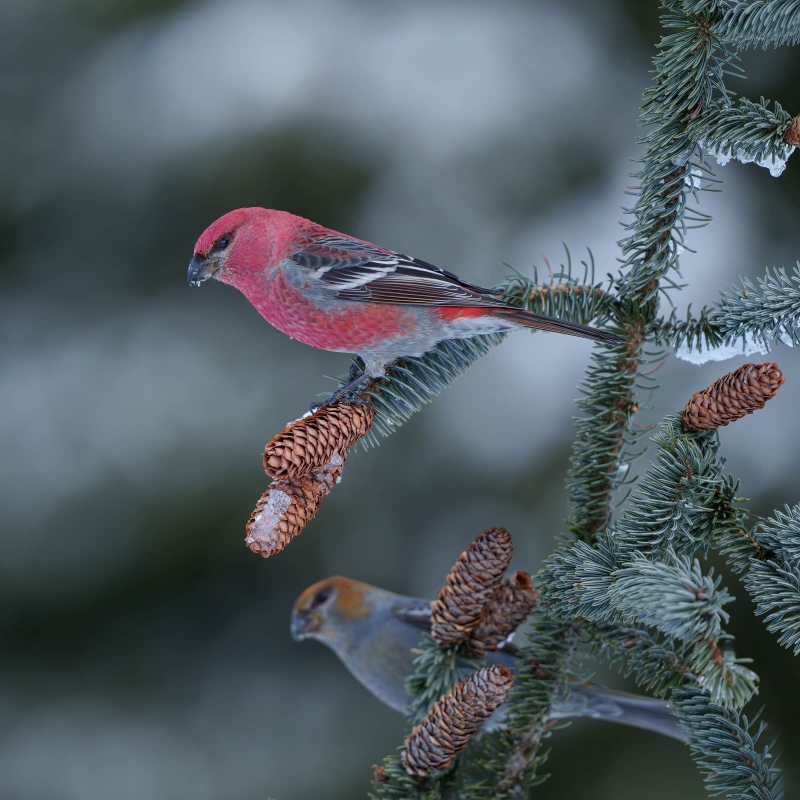
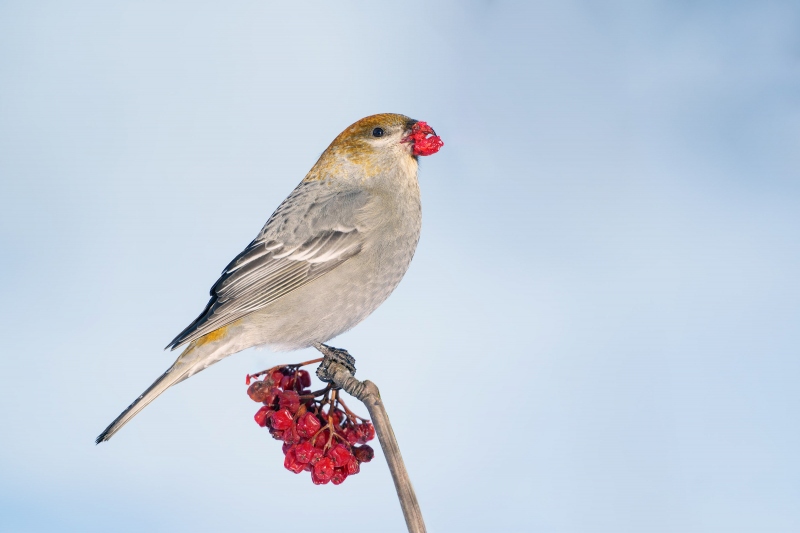
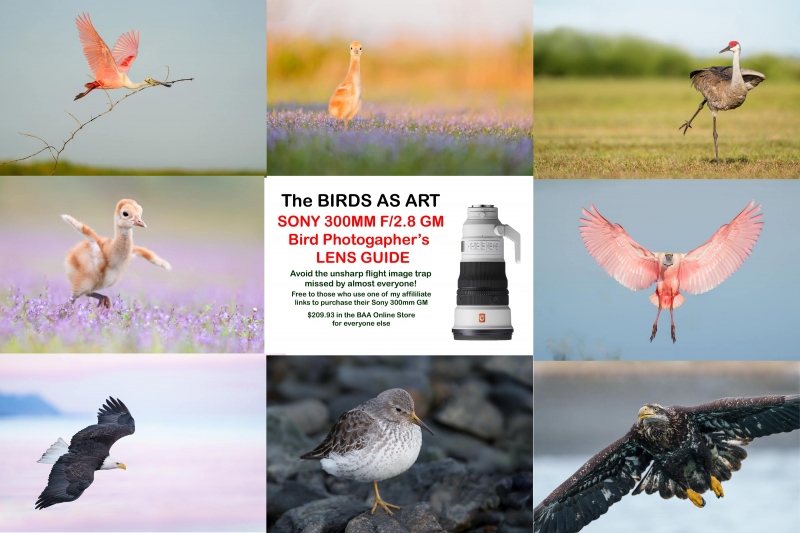
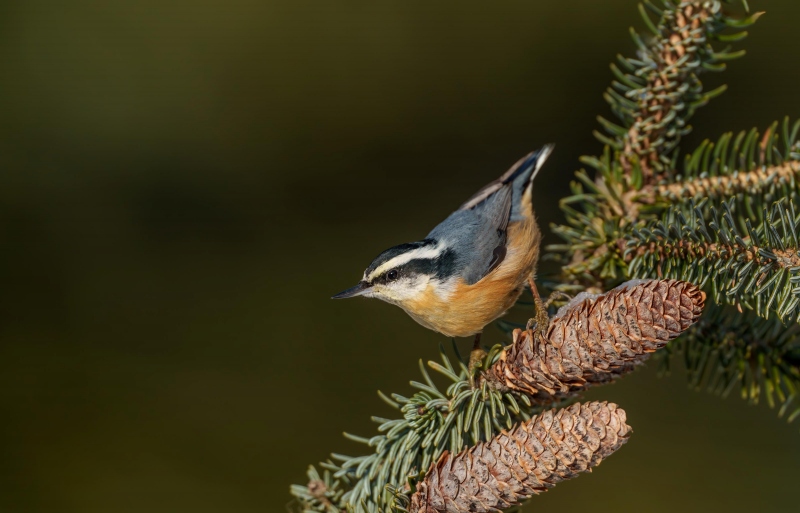
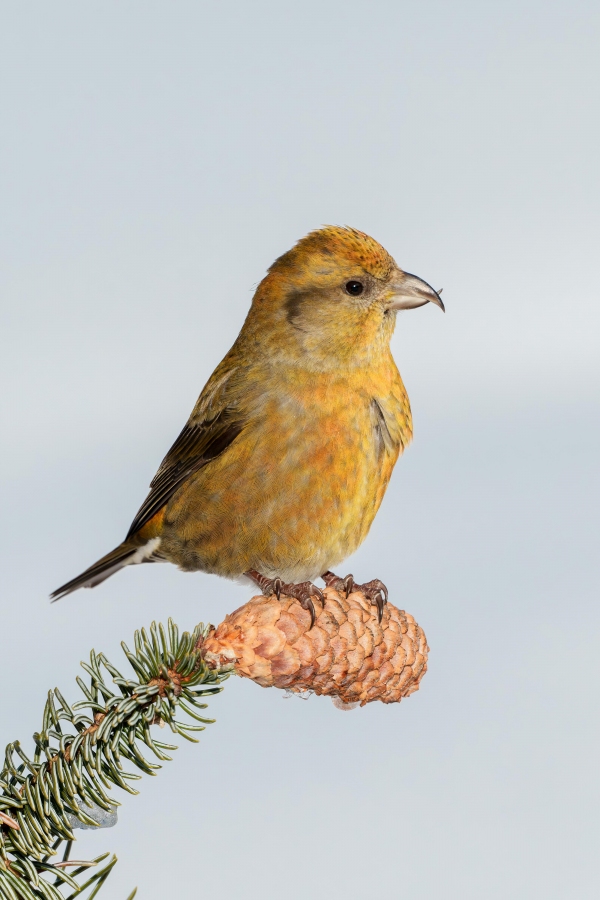
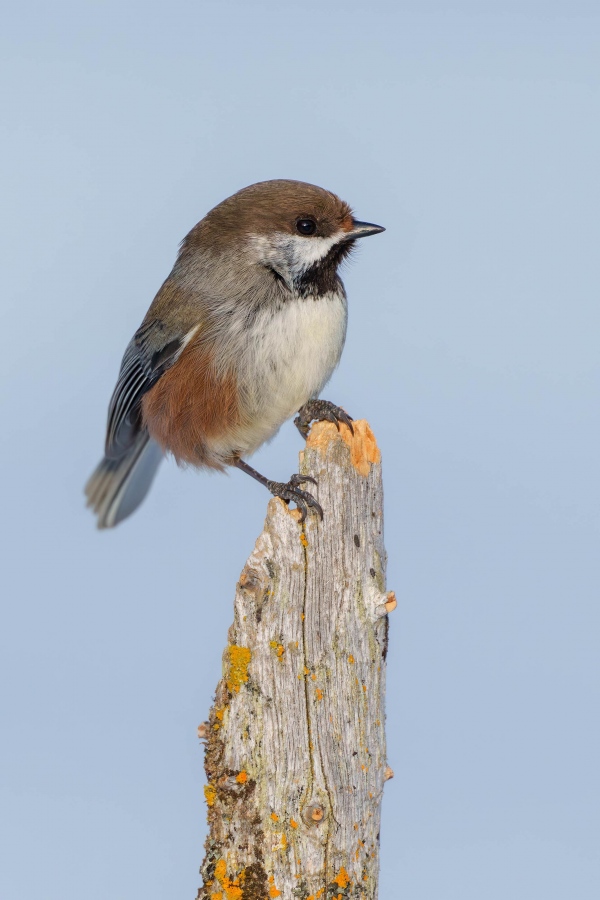
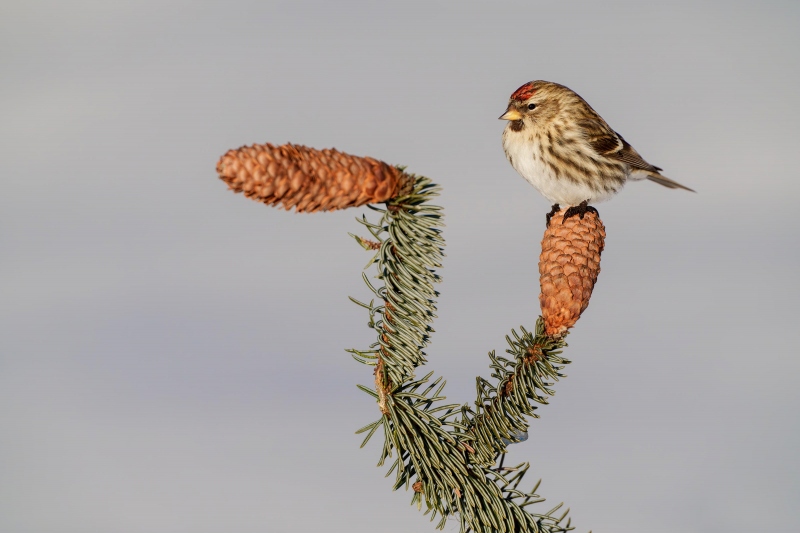
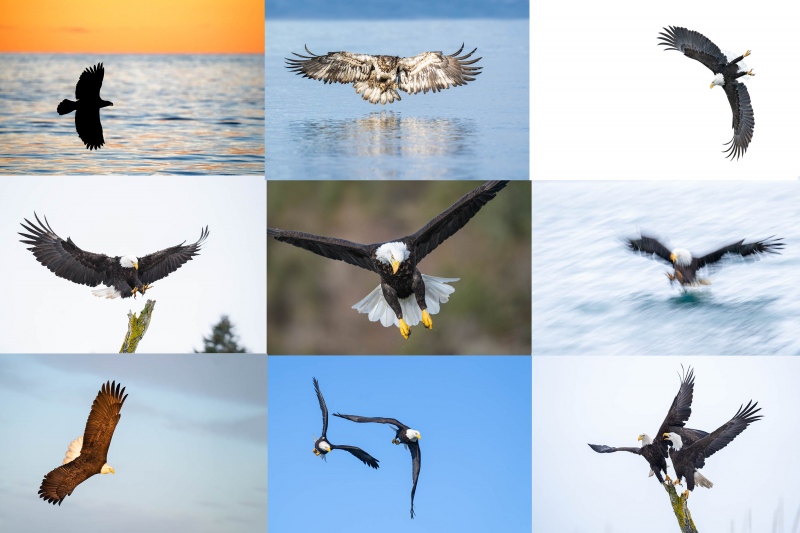
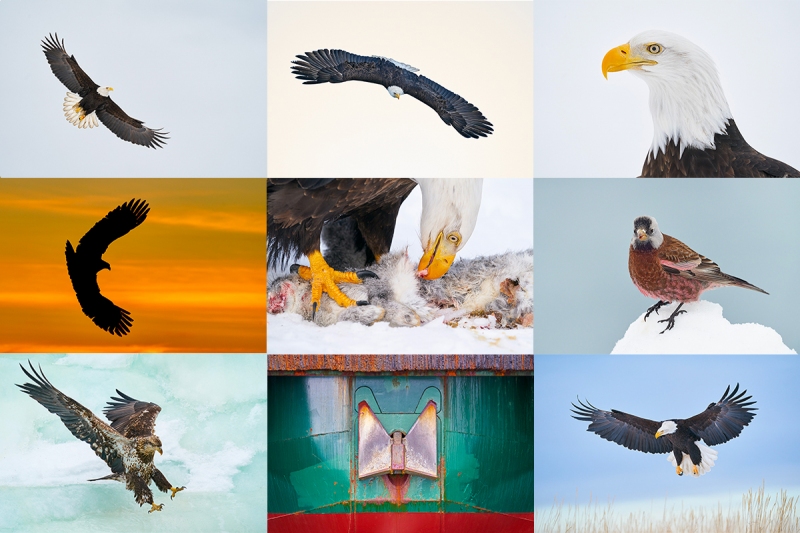






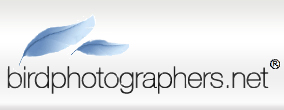


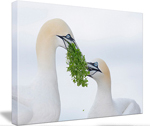



Everything Artie says about the Homer IPT is true. It’s not the only place to see and photograph bald eagles but it’s one of the most scenic. There’s no shortage of birds; there were times when we could see dozens of them flying around the boat and perched nearby. It’s amazing to have opportunities for head portraits that fill the frame. You’ll miss some flight shots but there are so many opportunities that it won’t matter. There was some very fancy camera equipment on the boat but I did fine with a Canon R7 and RF 100-400 f/5.6-7.1 STM lens, although I did wish I had brought a 70-200 f/2.8. the boat is warm inside and there’s plenty of room on deck, and you spend time ashore. The hotel is pleasant with a decent restaurant, and there’s a surprisingly large choice of good restaurants in Homer considering that it’s mid winter. (No other resto within walking distance of the hotel.) It got below zero F on our trip but that’s not common. It was a great and enjoyable trip (and I am still hoping for Artie’s review of the five images I submitted ). Don’t miss this opportunity.
Hi David, Thanks for your kind words about the Homer IPT. You should have let me know that I missed your images. I found them and sent the critiques to you and the rest of the boys and girls.
We did have an unusually cold week at the end of February but the temps never got anywhere near 0° F. The coldest it was at 10am was about 15° F on 1 March. On the last four days of FEB the 10am temps ranged from 15-22 F. And that was the coldest week in many years.
with love, artie
Artie: Thanks for the very helpful comments on my images. I’m amazed that you could still find them after so long!